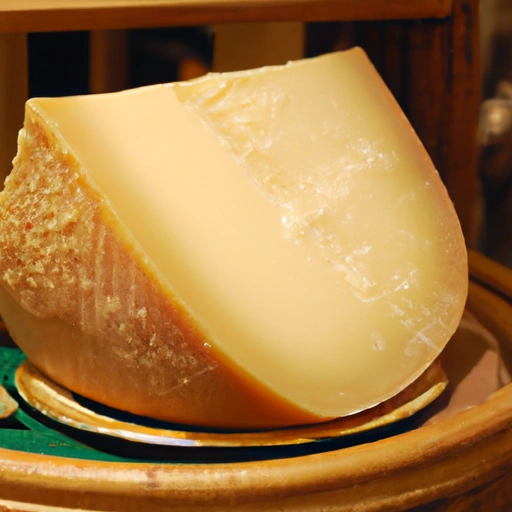Parmesan
Description

Parmesan, known formally as Parmigiano-Reggiano, is a hard, granular cheese that is widely used in various cuisines around the globe. It is named after the producing areas of Parma, Reggio Emilia, Modena, Bologna, and Mantua, Italy. In the culinary world, Parmesan is celebrated for its bold, nutty flavor and its ability to enhance the taste of dishes when grated over them.
Common uses
Parmesan is commonly used as a finishing touch to pasta dishes, soups, risottos, and salads. It is also an essential ingredient in many Italian recipes, such as eggplant Parmesan and Alfredo sauce.
Nutritional value
Calories
A one-ounce (28 grams/0.06 pounds) serving of Parmesan contains approximately 110 kcals (Calories).
Protein
This serving size provides about 10 grams/0.35 ounces of protein, which is essential for muscle repair and growth.
Fat
Parmesan is relatively high in fat, with 7 grams/0.25 ounces per serving, including saturated fat.
Carbohydrates
It contains less than 1 gram/0.035 ounces of carbohydrates, making it a low-carb option.
Vitamins
Parmesan is a good source of certain vitamins, including B12 and riboflavin.
Minerals
It is rich in minerals such as calcium and phosphorus, important for bone health.
Health benefits
Due to its high protein and calcium content, Parmesan can be beneficial for bone health and muscle maintenance. It also contains probiotics that may aid digestion.
Potential risks
However, due to its high sodium and saturated fat content, it should be consumed in moderation, especially by individuals with hypertension or heart disease.
Common recipes
Parmesan is a key ingredient in classic recipes like spaghetti carbonara, pesto, and Caesar salad dressing.
Cooking methods
While it is often used grated or shaved over dishes, it can also be incorporated into sauces, melted, or used in baked recipes.
Pairing with other ingredients
It pairs well with fruits like pears and figs, nuts such as almonds and walnuts, and full-bodied wines, including Chianti and Barolo.
Summary
In summary, Parmesan is a versatile and flavorful cheese that not only elevates the taste of dishes but also contributes nutritional benefits. Its rich history and distinctive production process have earned it a revered place in culinary traditions worldwide. Whether used sparingly or as a key component, Parmesan adds a touch of gourmet to any recipe.